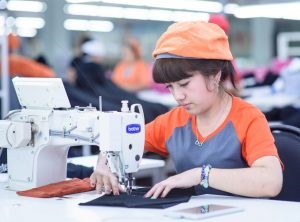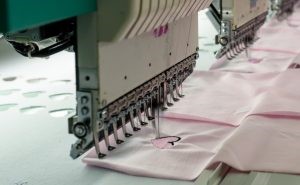
Still little noticed by Europe’s textile industry, Uzbekistan is experiencing a small revolution. Production is modern, and child and forced labour in the cotton fields has disappeared.
Uzbekistan is the sixth largest cotton producer in the world. A round table of representatives of the Federal Foreign Office, the Federal Ministry for Economic Affairs and Energy, the Federal Ministry for Economic Cooperation and Development and industry is unanimous: the working conditions in cotton harvesting and cotton production meet international standards. The verdict of the high-ranking experts is unanimous: Stop the boycott of the Cotton Campaign.
“When I was a child, I unfortunately missed a lot of school hours because of the cotton harvest. Today, thanks to the reforms, my daughter can go to school without interruptions and get a good education.”
Dilshoda Shodmonova from Chirchiq, Tashkent Province, in an interview with the ILO
ILO: “Child and forced labour no longer exists”
The ILO confirms enormous improvements in working conditions. After intensive audits, the EU Commission recently certified Uzbekistan as making very special progress in the environmental and social field.

The EU has rewarded efforts with duty-free market access. Several federal ministries are therefore expressly in favour of the US Cotton Campaign dropping its call for a boycott.
“The year 2020 was a special one. There was no more child labour and practically no forced labour in Uzbekistan. The international community should support the reforms in Uzbekistan.”
Jonas Astrup, Chief Technical Advisor, ILO Tashkent
Because of the harvesting methods in previous years, the Cotton Campaign called in 2003 for a boycott of Uzbek cotton products. At that time, entire schools and universities closed their doors for several weeks in the autumn. Together, teachers, pupils and students went to the countryside to harvest cotton. But since the end of the Karimov era in 2016, a lot has happened politically. The reforms on democracy and the market economy carried out by the new President Shawkat Mirsijojew are considered the most comprehensive since the end of the Soviet Union. Nevertheless, there are still 330 signatories worldwide of the “Cotton Pledge” initiated by the campaign. In addition to numerous US associations, their list also includes large, influential labels, including adidas, PVH, VF Corporation and Inditex.
“The activists of the Cotton Campaign should praise the reforms instead of torpedoing them.”
Jonas Astrup, Chief Technical Advisor, ILO Tashkent
ILO promotes trade and investment
As an independent UN organization, the ILO has been conducting monitoring in Uzbekistan since 2013, with special examination of child and forced labor since 2015. Dane Jonas Astrup is Chief Technical Advisor to the ILO in Tashkent. “The year 2020 was a special one. There was no more child labour and practically no forced labour in Uzbekistan,” the expert emphasizes. This is the conclusion reached by the ILO after a thorough review: 9,000 interviews were conducted by the 70 trained, independent men and women with whom the ILO has been working for more than two years. The ILO is convinced that trade and investment decisions by responsible international companies will help to finally shed the legacy of the old, centralised economy and continue to comply with international labour standards. That is why the ILO wants to support international companies that want to initiate business in Uzbekistan, inform and advise them.



Photos: © Uztextil
GPS+ and BCI facilitate sustainable procurement:
Good prospects for imports from Uzbekistan to the EU: The recently adopted special preferences GSP+ apply zero tariffs to Uzbek goods. At the same time, Uzbekistan has been pushing ahead with the certification of its cotton for years. International and national development cooperation organisations, including GIZ, are supporting the efforts on the ground with practical and financial assistance.
Popular investment target:
For 2021, Uzbekistan expects an inflow of foreign direct investment (including direct loans) of $7.7 billion. China accounts for just under a fifth of this. Chinese companies have been among the main investors in Uzbekistan for many years. Investors from Russia, South Korea, Turkey, some Arab countries and India are also entering the market with new projects. Chinese investors have invested over $300 million in three dozen Uzbek textile and …
Uzbek goods can now be imported into the EU duty-free. Only developing countries with high environmental and social standards qualify for the special preferences.
“In times of disrupted supply chains, excessive raw material prices and increasing sustainability requirements, it is high time to reorient ourselves,” says Martina Bandte, President of Gesamtmasche. “Uzbekistan can play an important role for us in the coming years.”